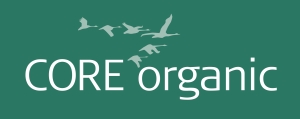The project DOMINO is established to demonstrate that innovative orchard management can enhance soil fertility, biodiversity and economic sustainability of intensive organic fruit orchards.
Organic fruits production systems are characterized by a ‘conventionalization’ of the management methods that are frequently reducing biodiversity and depend largely on external inputs to maintain soil fertility and assure plant protection. There is thus the need to introduce new strategies using multifunctional cover crops which can improve also the economic return of orchards.
The research performed within DOMINO aims at improving the long-term sustainability and the ecological foot print of intensive organic fruit production. It focuses on the interaction of fruit trees with different wild species, organic residues and microbioma and it intends to break the paradigm of monoculture in organic fruit growing, enhancing the ecosystem services.
The innovation proposed by the project are new methods to tackle current critical issues of organic fruit growers: economic sustainability of the crop, certification-related issues, ecosystem services. They will concern:
- The development of new strategies to manage the space between fruit trees (intra-row) by increasing the biodiversity of the orchards (use of living mulches) and testing the production of secondary crops that can reduce the competition from weeds and provide additional economical return for farmers;
- The optimization of fertilisation strategies using regionally available recycling fertilisers and leguminous intercrops to improve nutrient balances and ecosystem services;
- Understanding and managing the soil fertility to optimize nutrient use of fruit trees increasing tolerance to diseases;
- Evaluating partly closed cover systems to support non-chemical pests and diseases control;
- Assessing potential long-term positive consequences on the environment of the mixed production systems
- Calculating economic impact of the proposed strategies on organic fruit growing systems
The activities are planned in five European Union states (Italy, Germany, Poland, France and Bulgaria) and in Switzerland, in different major fruit production regions. The expected wide impact of the project derives thus from its cross-disciplinary approach, with a broader applicability to other production systems. Indeed, the contribution to make perennial fruit growing more compatible with organic principles could simplify conversion to organic farming increasing the potential for further growth of the sector and reducing the risk for negative environmental impacts.
Implementation period: May 2018 – April 2021
Funding: CORE Organic COFUND program, an EU co-funded transnational joint program based on funds from participating countries and funding from the European Union, Grant n.
Total amount of funding: 1.300.000 Euro
